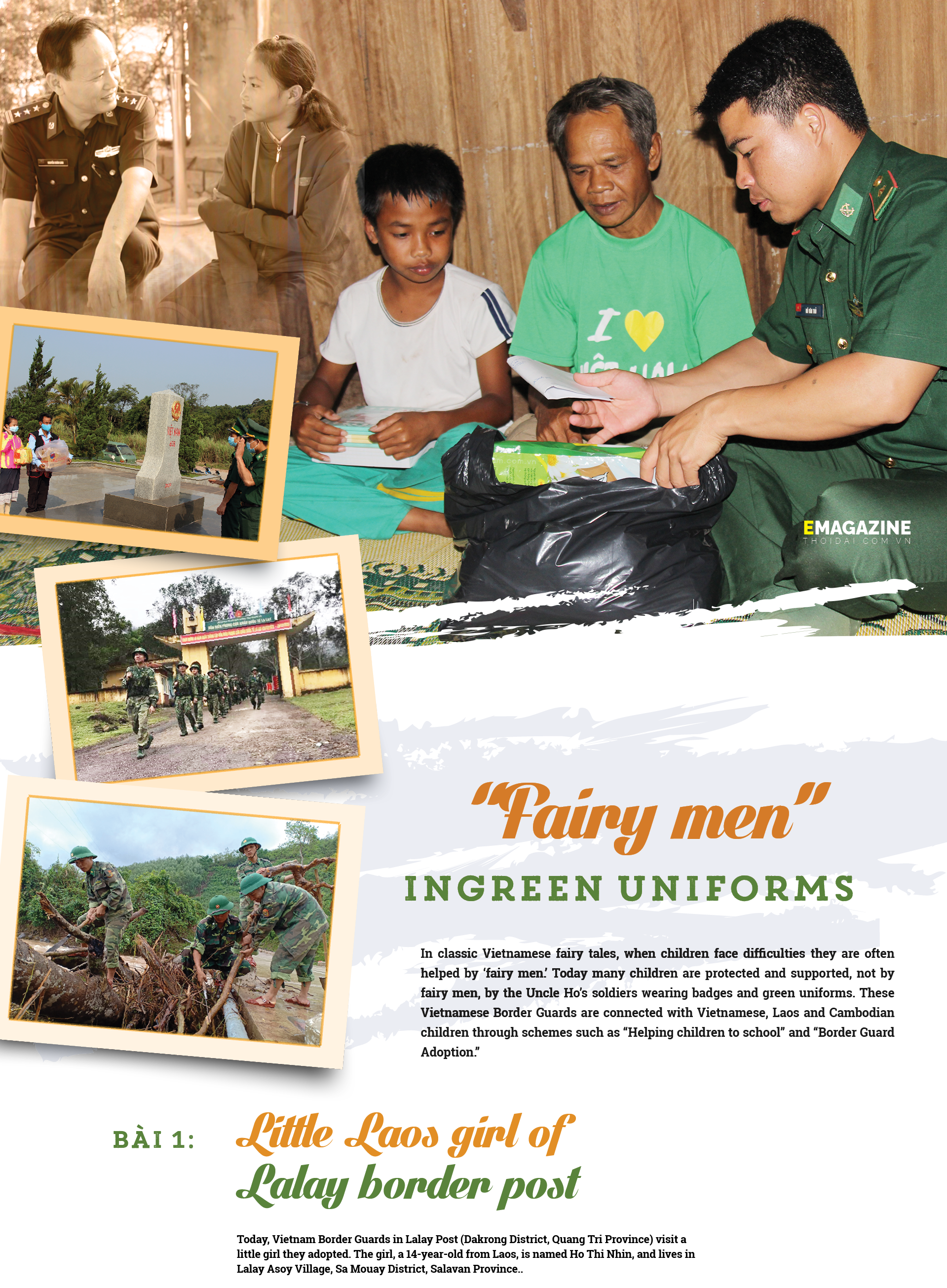 |
 |
| In the late spring rain, soldiers in Lalay Border Post sit, crowded on a pickup truck crawling up a slippery road. Having passed the border, they get off the truck, line up and look across the border. Deputy commissar Le Xuan Truong and the team leader Ho Van Thu grab a gift box filled with clothes, brand new mosquito nets, instant noodles and candy. They put the box at the foot of the landmark and step back, waiting. Seconds later, someone shouts “There she is!” as two tiny shadows emerge from the hillside behind the landmark. They gradually become clearer: a little girl accompanied by an austere middle-aged man. “She’s Ho Van Nhin, the Laos girl that have been adopted by Lalay Border Post is part of the ‘Helping children to school’ program” says Commissar Nguyen Xuan Linh “The man accompanying her is Bun Than, head of Lalay Asoy Village, where Nhin lives. Bun Than stops in front of the landmark and waves, while Nhin politely crosses her arms, and bows her head to the border soldiers. Despite the warmth between them the group stays 5 meters as per pandemic regulations. No one crosses the landmark. |
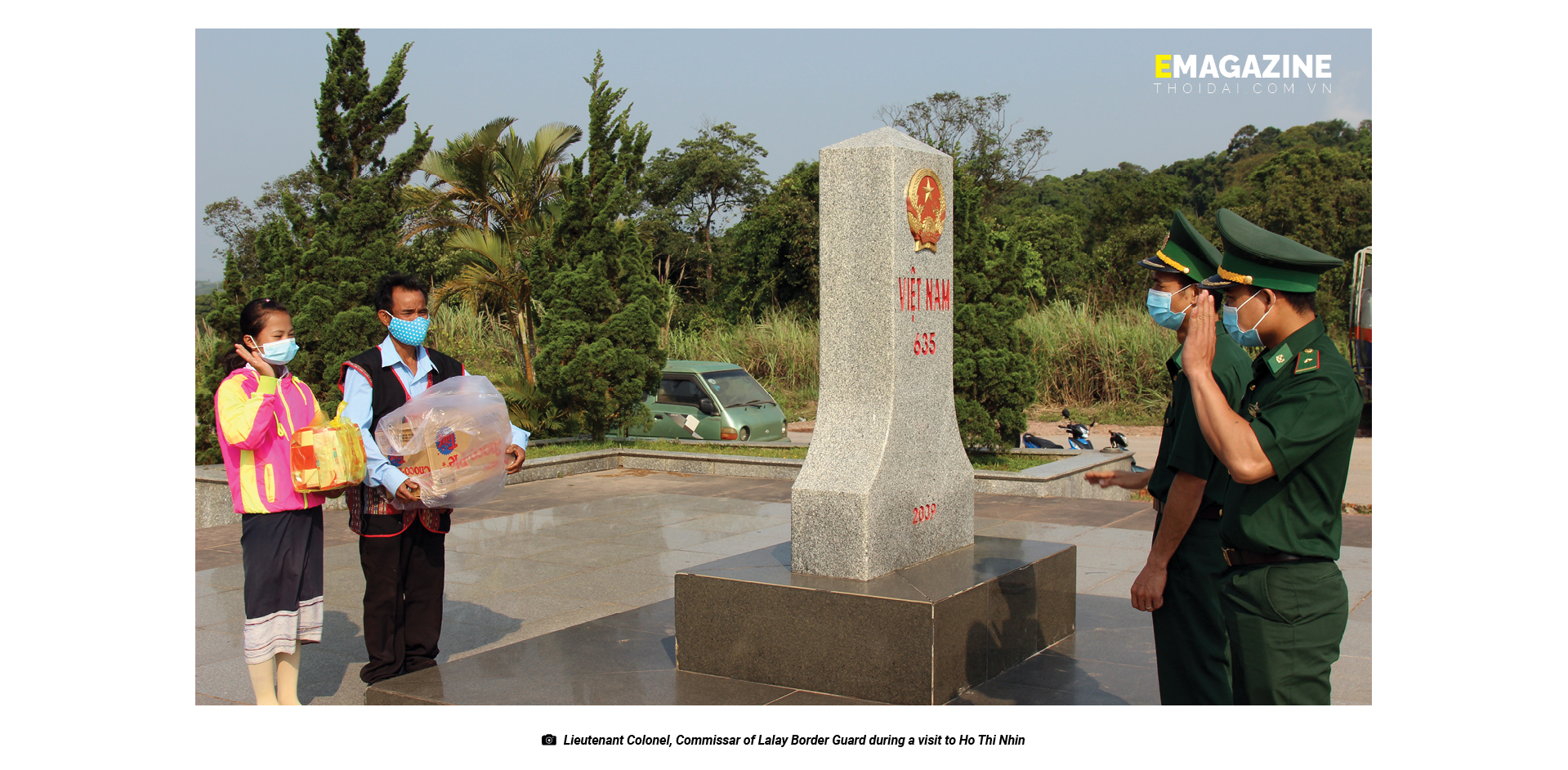 |
| The border guards and Nhin speak softly to one another, as a soft breeze blows between them. “Are you and your family still safe? Try to study well then win a certificate of merit as a present to us,” a guard says smiling. Nhin replies quietly, her Vietnamese language far from perfect: "I'm fine, please visit my village when the pandemic is over." |
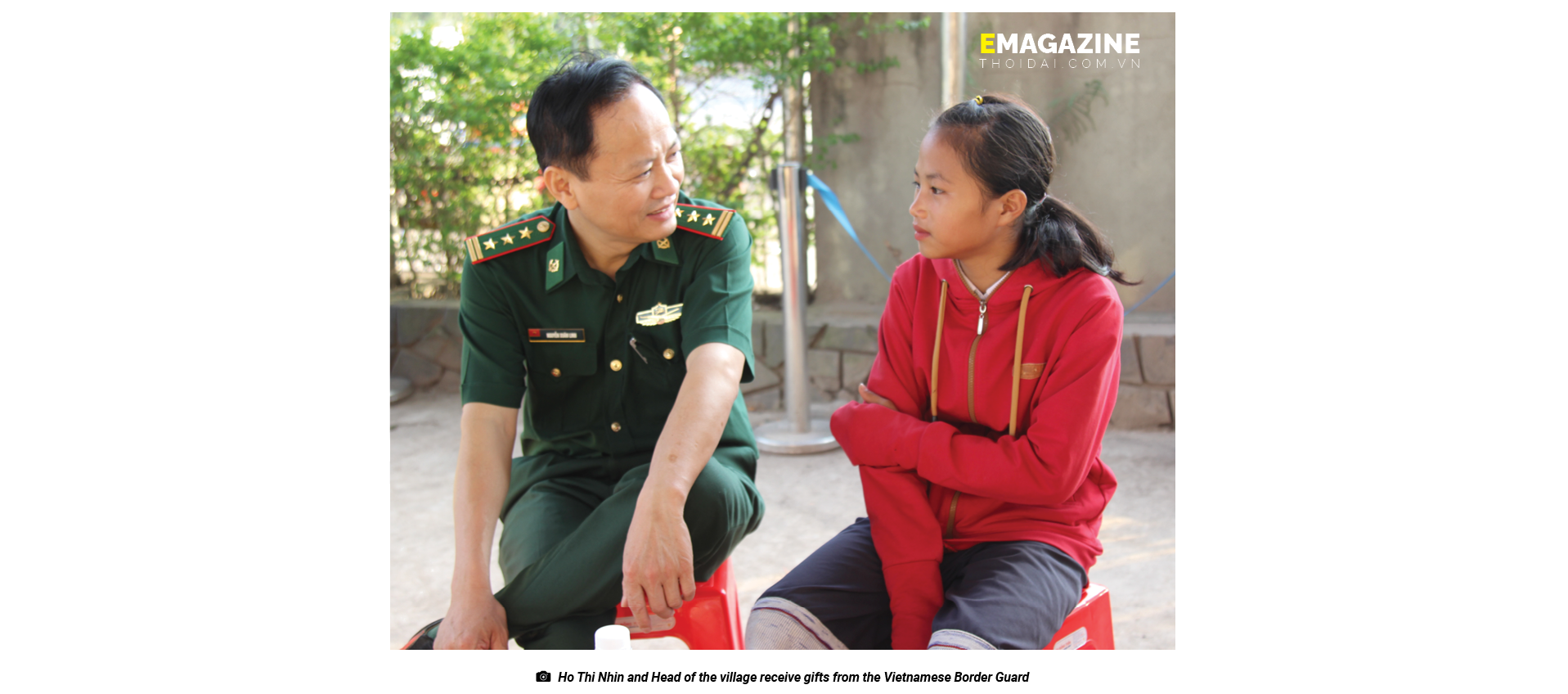 |
| Lieutenant Colonel Nguyen Xuan Linh, Lalay Border Post’s commissar, says that in normal times, officers and soldiers would visit Nhin’s house, to bring her gifts and money, and chat with her. But due to the pandemic, such trips must comply with safety procedures. No one is allowed to pass the border, not even by a step. The gifts are put at the landmark’s foot and pushed to the other side. Nhin has been sponsored by the border post, and the soldiers consider her a daughter. Even during the pandemic, everyone hopes to get on the truck to meet Nhin at the border. Lalay Border Post currently supports two children as part of the program, a Vietnamese and a Laotian. The post has also adopted two children under the “Border Post Adoption” program, as well as a further two in the “Together fight against ignorance” program. |
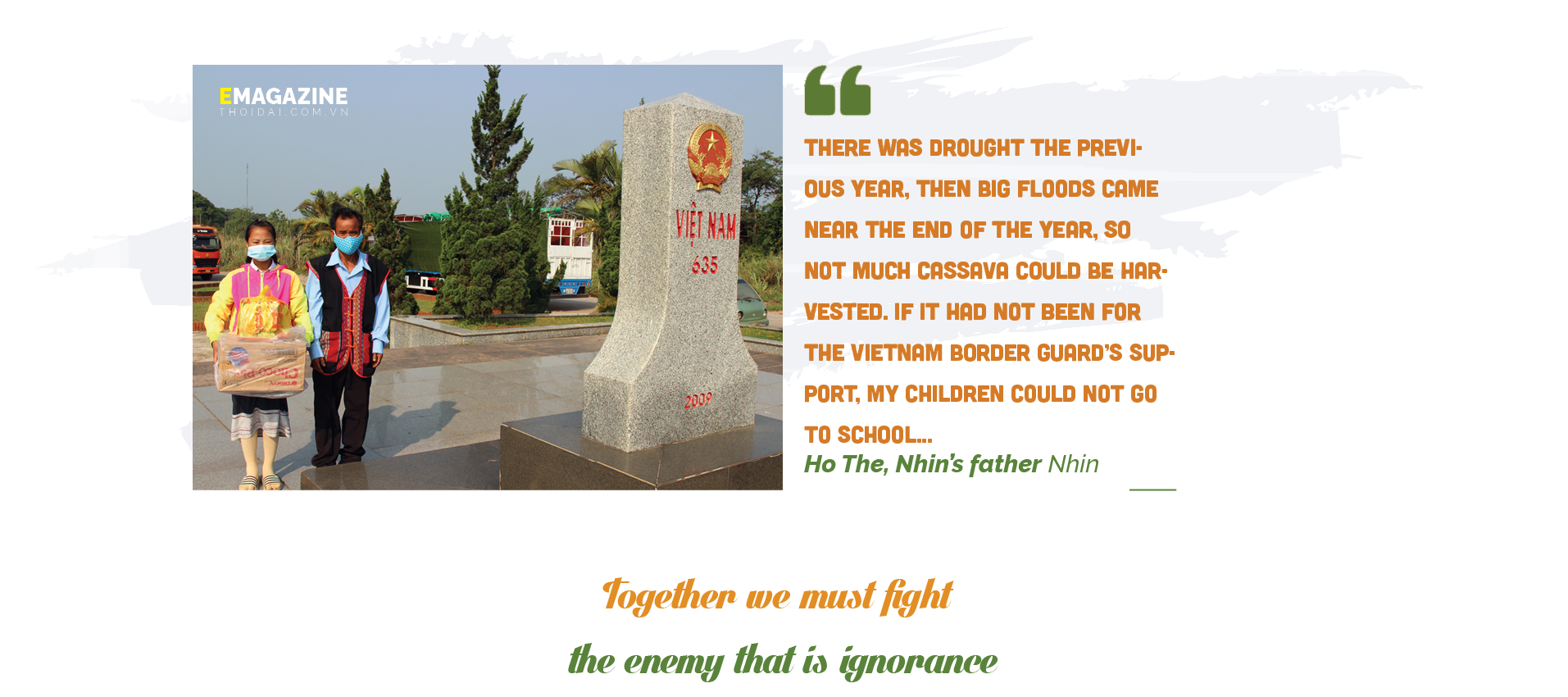 |
| Nhin and people in her village are Pacoh people living in Salavan Province, Lao. Nhin’s father Ho The, and mother Ho Thi Thoa have suffered much harship and illness, despite only being in their thirties. They have six children. The father is in poor health and the mother, facing postpartum complications because of giving birth in unsafe conditions, is weaker still. They mainly work as cassava farmers, plowing the land then spending the whole year taking care of the crop. During harvest season, they carry baskets of cassava weighing 20-30 kg. A healthy adult can carry 50 kg. They struggle all year round, eating little but cassava and perhaps a tiny bit of rice for the three youngest children. |
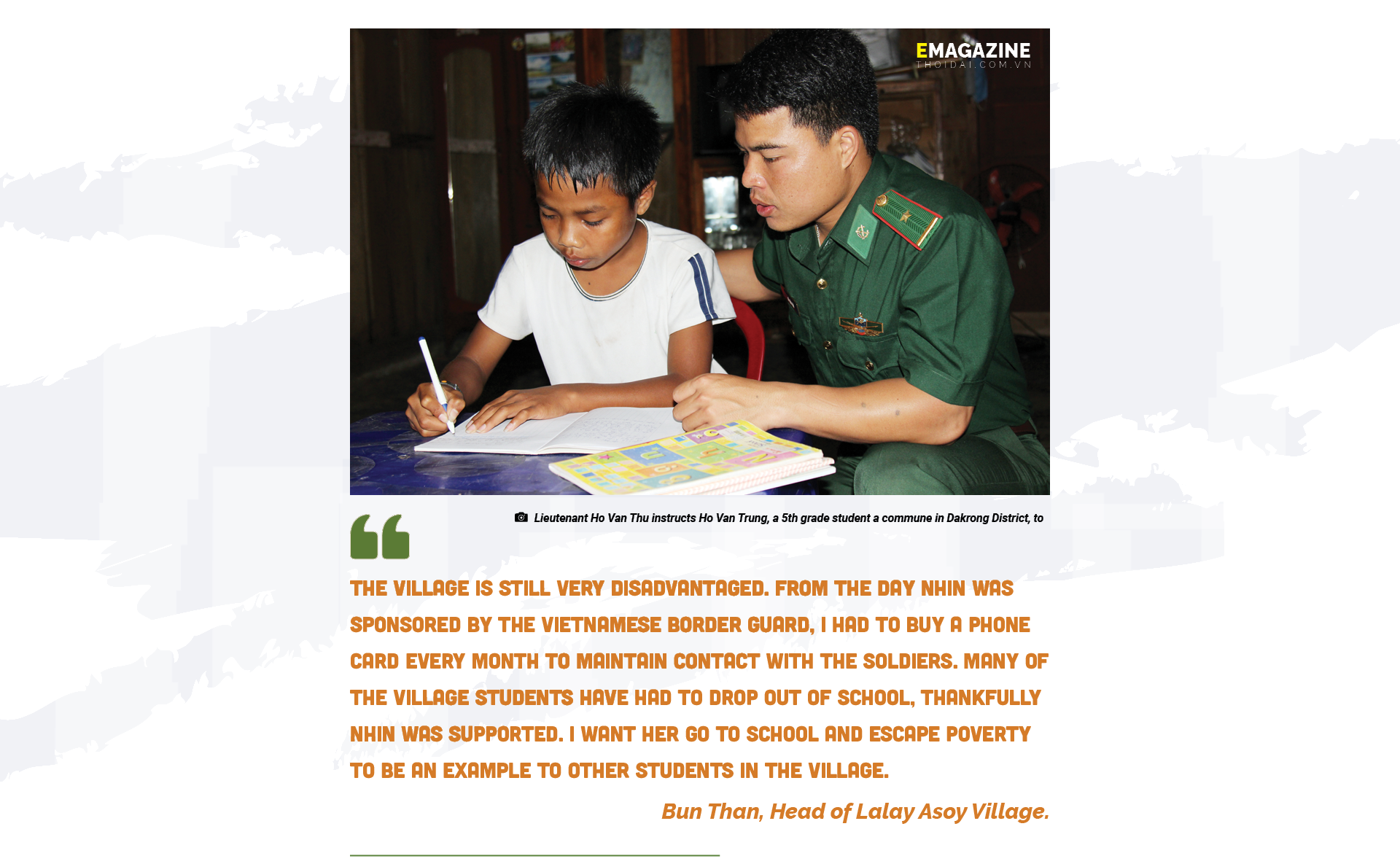 |
| Back in 2017, when Nhin was in grade 4, the weather was very harsh. The beginning of the year saw severe drought, while the rain season brought heavy floods. Only one-third of the fields could be harvested. Despite knowing education was the way to escape poverty, there was little to be done. The “road to school” was about to close for Nhin and her younger brothers and sisters. Fortunately, at the recommendation of local cadres, Vietnamese border guard went to visit Nhin's family home and agreed to support her for school. Nhin received many gifts, books and clothes. When she first saw the soldiers in their smart green clothes and badges, bringing instant noodles, candies, mosquito nets, clothes, schoolbags, she was bewildered by it all. Listening to the soldiers as they patted her head and kindly talked to her, Nhin could only babble a few small words in Vietnamese. “Thank you, Mr. border guards.” From that day on, Nhin has went to school, and every month, Lalay Border Post gives 500,000 VND (22 U.S. dollars) to her directly or through Laos police. In 2019, when Nhin went to secondary school, far from her home, the border guards brought her a brand-new bicycle so that she could ride to school every day. When the bike broke down, Nhin asked the head of her village Bun Than to take the bike to the border to have the guards get it fixed. |
 |